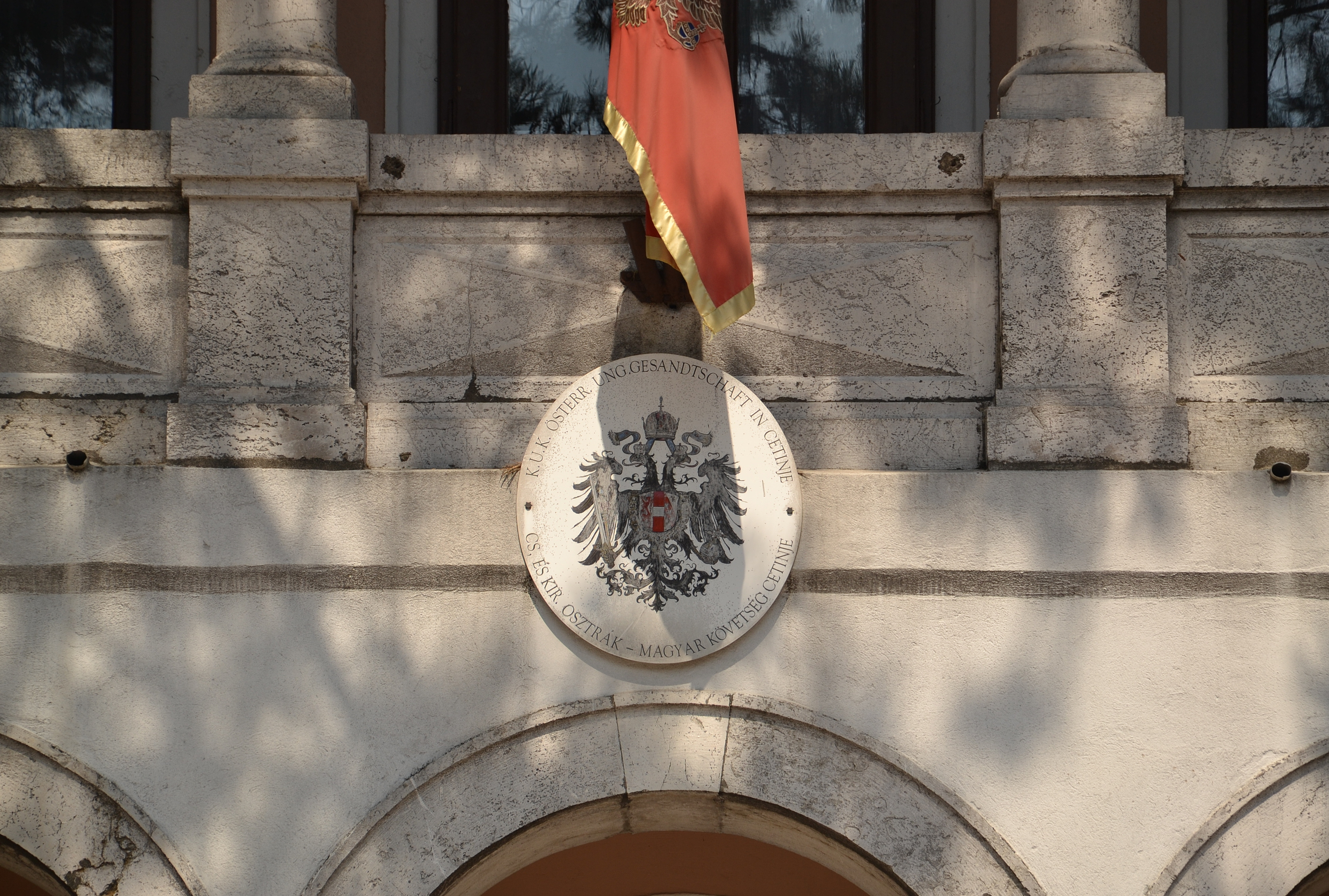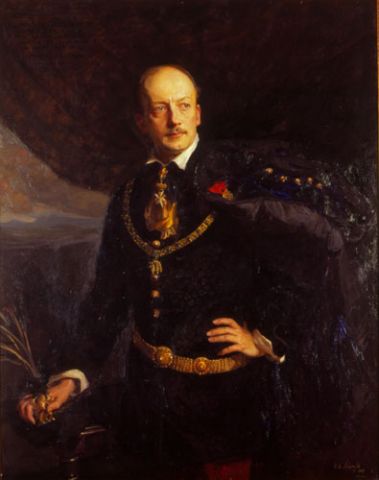|
Alexander Hoyos
Ludwig Alexander Georg Graf von Hoyos, Freiherr zu Stichsenstein (13 May 1876 – 20 October 1937) was an Austria-Hungary, Austro-Hungarian diplomat who played a major role during the July Crisis while serving as chef de cabinet of the Foreign Minister at the outbreak of World War I in 1914. He was the last chef de cabinet of Austria-Hungary. He was the grandson of Robert Whitehead, the inventor of the torpedo. Early life Hoyos was born in Fiume (then part of Austria-Hungary, now called Rijeka in Croatia) on 13 May 1876 into the House of Hoyos, a noble family that hailed originally from Spain, but which had migrated to Austria around 1525. Over the centuries, the family had become part of the Hungarian nobility. His parents were Georg Anton, Count of House of Hoyos, Hoyos (1842–1904), and Alice Whitehead, who was the daughter of Robert Whitehead, the British engineer and inventor of the torpedo. They had married in 1869, and Georg Hoyos had been in charge of the Whitehead shi ... [...More Info...] [...Related Items...] OR: [Wikipedia] [Google] [Baidu] |
Austro-Hungarian Ambassadors
This is a list of diplomatic missions of Austria-Hungary from the formation of the Dual Monarchy in 1867 until it was dissolved in 1918. For a background to the diplomatic service of Austria-Hungary, including the types of diplomatic representation, see Austro-Hungarian Foreign Service. History Austria-Hungary had 110 non-honorary consulates and 364 honorary consulates, for a total of 474, in pre-war 1914. This number declined as a result of World War I; consulates in Italy and the U.S. respectively closed in 1915 and 1917, making up the majority of consulates closed in those years. The number of consulates declined to 307 upon the declaration of war in 1914. This declined to 273 in 1915, 227 in 1916, and 193 in 1917. In 1918, upon the end of the empire, Austria-Hungary had 13 consulates-general, 18 other consulates, a consular agency, and a vice-consulate.Agstner, Rudolf. ''Austria (-Hungary) and Its Consulates in the United States of America Since 1820''. LIT Verlag Münster, 2 ... [...More Info...] [...Related Items...] OR: [Wikipedia] [Google] [Baidu] |
Otto Von Bismarck
Otto, Prince of Bismarck, Count of Bismarck-Schönhausen, Duke of Lauenburg (, ; 1 April 1815 – 30 July 1898), born Otto Eduard Leopold von Bismarck, was a conservative German statesman and diplomat. From his origins in the upper class of Junker landowners, Bismarck rose rapidly in Prussian politics, and from 1862 to 1890 he was the Minister President of Prussia, minister president and List of foreign ministers of Prussia, foreign minister of Prussia. Before his rise to the Executive (government), executive, he was the Prussian ambassador to Russian Empire, Russia and Second French Empire, France and served in both houses of the Landtag of Prussia, Prussian Parliament. He masterminded the unification of Germany in 1871 and served as the first Chancellor of Germany#Under the Emperor (1871–1918), Chancellor of the German Empire until 1890, in which capacity he dominated European affairs. He had served as the chancellor of the North German Confederation from 1867 to 1871, alon ... [...More Info...] [...Related Items...] OR: [Wikipedia] [Google] [Baidu] |
Hoyos Mission
The Hoyos Mission describes Austro-Hungarian Foreign Minister Leopold Berchtold's dispatch of his promising 38-year-old private secretary, Alexander, Count of Hoyos, Alexander Hoyos, to meet with his German Empire, German counterparts. This secret mission was intended to provide Austria-Hungary, Austro-Hungarian policy-makers with information on the Reich's intentions shortly after the Assassination of Archduke Franz Ferdinand, assassination of Franz Ferdinand of Austria, the Imperial and Crown prince, Royal Kronprinz, in Sarajevo. On 5 July 1914, a week after the assassination attempt that claimed the lives of the heir to the throne and his wife, the Austro-Hungarian government sought to officially secure the Reich's support for the actions it wished to take against Serbia in response to the attack. Indeed, the initiatives of the Kingdom of Serbia, victorious in the two Balkan Wars, Balkan wars, prompted Austro-Hungarian officials to adopt a firm stance in the international crisis ... [...More Info...] [...Related Items...] OR: [Wikipedia] [Google] [Baidu] |


